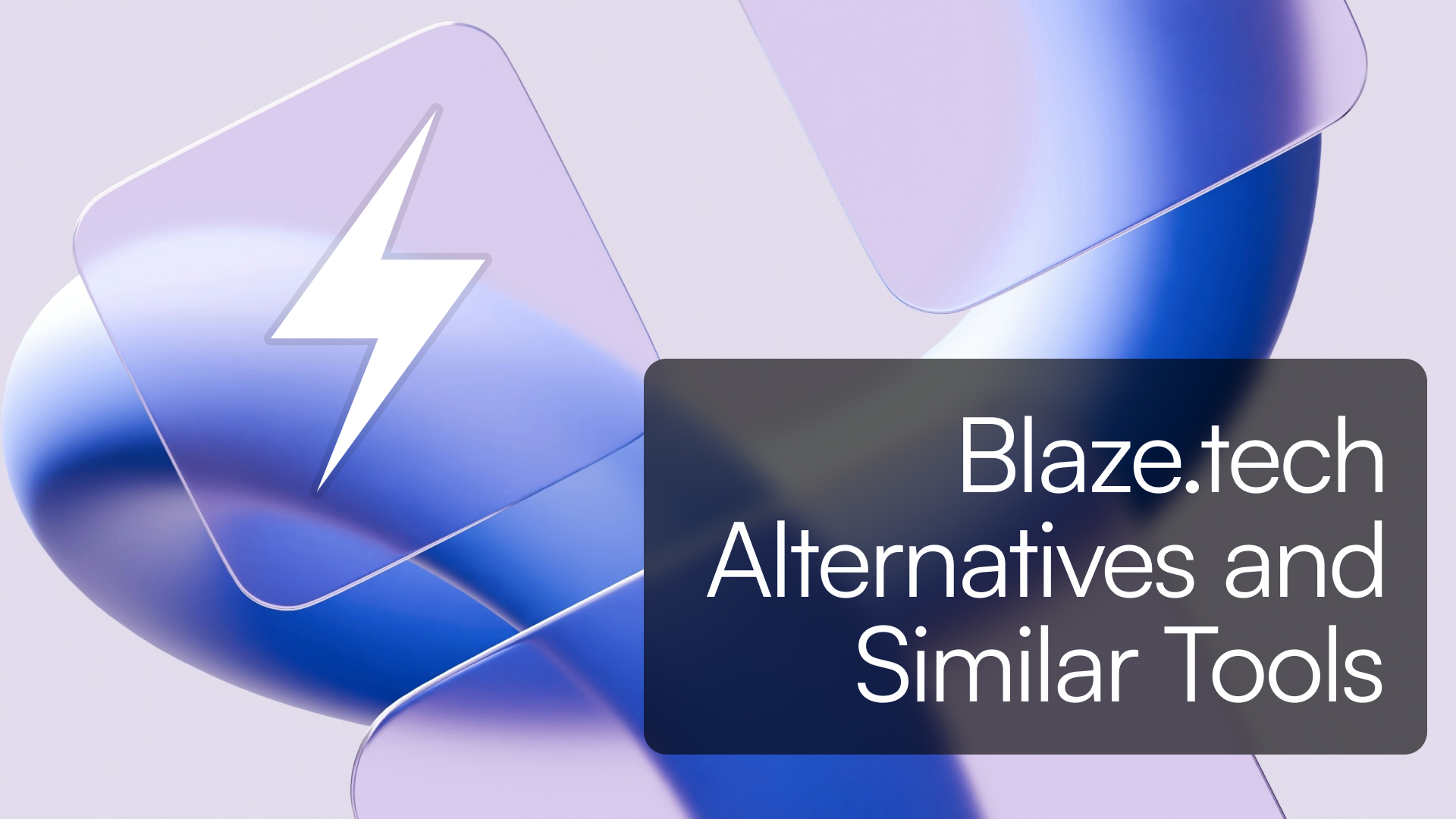Introduction
Free online databases provide essential tools to organize, store, and manage data without an up-front investment, making them ideal for startups, small businesses, and individual projects. For those looking for more advanced, customizable solutions, platforms like Tadabase offer robust functionality with a 14-day free trial to explore features before committing.
Here’s a look at Tadabase and five other completely free online databases, each offering unique advantages and designed to fit a range of data management needs.
What is an Online Database?
An online database is a digital, cloud-based platform used for storing, organizing, and managing data. Unlike traditional databases that are stored on local servers, online databases are hosted on the cloud, making them accessible from anywhere with an internet connection. This accessibility supports remote work, real-time collaboration, and data sharing across teams without the need for dedicated IT infrastructure.
How Online Databases Work: Online databases store data in tables or forms that can be customized based on the specific information you need to track, such as customer details, inventory levels, or project tasks. Most online databases allow users to filter, sort, and search data, and many platforms include automation options that handle repetitive tasks like sending reminders or syncing updates.
Because they’re cloud-based, online databases can scale as needed, offering flexibility for projects of varying sizes—from simple contact lists to complex applications involving large data sets. With features for data visualization, permissions, and workflow automation, online databases are a versatile tool for businesses, freelancers, and teams looking to manage data effectively.
Curious about the difference between databases and spreadsheets? Explore the comparison here to see which is the best fit for your data needs.
Why Tadabase is Worth Considering
Powerful Customization with a Free Trial

Tadabase sets itself apart by allowing users to build highly customizable, data-driven applications tailored to specific business needs. Although Tadabase does not offer a permanently free plan, it provides a 14-day free trial that grants access to all its powerful features, including:
-
Custom App Building: Tadabase’s no-code interface allows businesses to create custom applications without requiring technical expertise. This level of customization is ideal for building unique databases, CRMs, or inventory management systems that fit specific workflows.
-
Workflow Automation: Tadabase includes advanced workflow automation capabilities, such as real-time notifications, data syncing, and task automation, which streamline processes and reduce manual work. These automations are especially valuable for teams managing complex data.
-
Real-Time Collaboration and Data Updates: Tadabase enables teams to work together with live data updates, ensuring that everyone has access to the latest information. The platform supports role-based permissions, allowing secure data access for different team members.
-
Scalability: As businesses grow, Tadabase can scale with them, making it easy to transition from small projects to more complex applications without changing platforms.
The free trial offers an opportunity to test-drive these features, allowing users to determine if Tadabase’s robust capabilities are a good fit before committing to a paid plan. For businesses that need customized applications with automation and scalability, Tadabase’s flexibility and depth make it a worthwhile investment.
Top 5 Completely Free Online Databases
Tried and Tested by Industry Experts
For those managing data without a cost commitment, here are five completely free online databases. Each offers practical features for data organization and management.
1. Airtable Free Plan 
- Best For: Project management and data organization for small teams.
- Key Features: Airtable combines a spreadsheet interface with database functionality, offering customizable views (grid, Kanban, calendar) and basic automations. It integrates with tools like Slack and Google Drive.
- Limitations: The free plan provides 2GB of storage and limits records to 1,200 per base, with restricted automation.
- Ideal Use: A straightforward, visually intuitive platform for organizing projects or managing small databases. Airtable is well-suited to collaborative tasks, event planning, and simple customer tracking.
2. Google Firebase Free Tier 
- Best For: Real-time data management for mobile and web applications.
- Key Features: Firebase’s real-time database allows for instant data updates, making it ideal for applications that need live data synchronization. It includes analytics, authentication, and integrates within the Google ecosystem.
- Limitations: Limited storage and bandwidth make it suitable mainly for small projects or development phases.
- Ideal Use: Popular with developers creating apps requiring real-time updates, such as chat applications and prototypes.
3. Zoho Creator Free Plan 
- Best For: Simple applications and form-based data collection.
- Key Features: Zoho Creator provides a no-code app builder to create custom forms and reports. It includes templates for various use cases and basic automation.
- Limitations: The free plan allows for only one application and includes a 250MB storage limit, with restrictions on user access and automation actions.
- Ideal Use: Ideal for small teams or individual users needing a simple way to collect and manage customer information, feedback, or registration data.
4. Caspio Free Plan 
- Best For: Data-driven applications with simple app-building capabilities.
- Key Features: Caspio’s no-code platform enables users to build web-based applications, with features like role-based permissions and custom views. The free plan includes 1GB of storage and supports basic integrations.
- Limitations: Limited records and storage capacity; fewer customization options than paid plans.
- Ideal Use: Useful for creating applications like inventory management or project dashboards. Caspio’s no-code setup makes it accessible for teams without technical skills.
5. SeaTable Free Plan 
- Best For: Collaborative data management with a spreadsheet-like interface.
- Key Features: SeaTable offers a spreadsheet-based interface with robust database functionalities, supporting custom fields, multiple views, and integrations with external tools.
- Limitations: Storage and record limits apply to the free plan, with some advanced features reserved for paid upgrades.
- Ideal Use: SeaTable works well for teams that prefer a familiar spreadsheet interface but need additional database functions for managing tasks, inventories, or customer data collaboratively.
Want to dig deeper into database types? Check out this guide to cloud databases for insights on how they compare to traditional options.
How to Choose the Right Free Online Database
Consider these factors when selecting a free online database:
-
Data Volume and Complexity: Assess your data storage needs and look for platforms with adequate free storage or easy upgrade options.
-
Customization and Automation: For custom workflows or forms, platforms like Zoho Creator and Caspio offer flexibility. Airtable and Firebase support basic automation but are more limited.
-
Technical Skills: For non-developers, Airtable, Zoho Creator, and SeaTable provide intuitive interfaces. Firebase is geared more toward developers building real-time applications.
-
Future Scalability: If you anticipate growth, choosing a platform with upgrade options will ease transitions. Tadabase offers a free trial to explore its scalability, enabling users to start with small projects and scale up as needs expand.
Practical Applications of Free Online Databases
Free online databases offer flexible solutions for a wide range of data management needs. Here are a few practical ways to use these platforms:
1. Project Tracking and Task Management
- Purpose: Use Airtable or SeaTable to organize projects, set deadlines, and assign tasks.
- How It Works: Break projects into tasks using grid or Kanban views, assign team members, and set reminders to keep on schedule. Collaborative features let team members update task statuses and share progress notes, helping everyone stay aligned.
2. Real-Time Data for Web and Mobile Apps
- Purpose: Firebase’s real-time database is a good fit for apps needing instant data synchronization, like chat or interactive apps.
- How It Works: Firebase syncs data across devices, providing live updates in real time. Built-in authentication secures user logins, and analytics track interactions within the app.
3. Customer Data Collection and Management
- Purpose: Zoho Creator provides a no-code way to create forms for collecting and managing customer data.
- How It Works: Set up intake forms with fields for customer details, preferences, or feedback. Data is stored directly in the database, accessible to team members for easy viewing and organization. Basic automation triggers follow-up notifications.
For educational database needs, check out our guide to education databases for specific use cases and recommendations.
Summary
These five completely free online databases offer versatile, cost-effective solutions for managing data. Tadabase’s free trial provides additional flexibility, allowing users to explore custom workflows and automation for scalable needs. Each platform has strengths suited to different purposes, from project tracking to customer data management.
Whether you’re getting started or managing ongoing projects, free databases help you organize and collaborate efficiently without upfront costs. Platforms with scalable options make it easy to transition to paid plans as needs expand.
Frequently Asked Questions
1. What can I expect from a completely free online database?
- Free online databases provide cloud-hosted environments to store and manage data. Free plans often limit storage, records, or features, but they’re suitable for small projects or basic data needs.
2. What are the limitations of free online databases?
- Common limitations include storage caps, limited automation, basic features, and restricted user access. These are often sufficient for personal projects or small teams but may require upgrades for larger needs.
3. How secure are free online databases?
- Free databases typically include basic security features, such as password protection and SSL encryption. Advanced security (like multi-factor authentication) is usually reserved for paid plans.
4. When should I consider upgrading from a free plan?
- Consider upgrading if you need more storage, customization, or security features, or if collaboration requirements increase. Tadabase’s free trial allows users to test advanced features, helping them decide on an upgrade.
5. Are there any free online databases with automation features?
- Yes, some free online databases offer basic automation:
- Airtable: Basic task reminders and notifications.
- Zoho Creator: Simple workflows within form-based applications.
- SeaTable: Basic data processing automations.
- For complex automation, Tadabase offers robust workflow options during its free trial.







